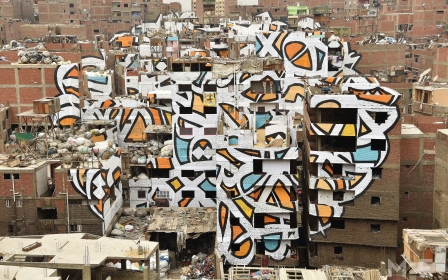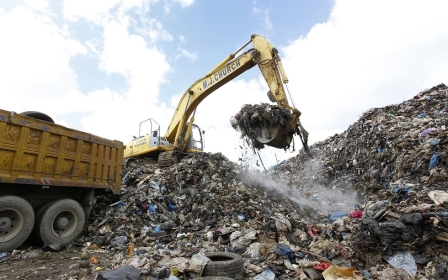Garbage crisis returns to parts of Lebanon

A garbage crisis has returned to Lebanon with piles of trash piling up in regions north of Beirut months after the government headed off a political crisis over uncollected waste.
The local council in the suburb of Bourj Hammoud, where a temporary dump is located, have for the past week denied access to garbage trucks on the grounds that the authorities had failed to honour a commitment to open a waste-treatment plant.
In March, after an eight-month crisis which led to mass street protests, the government approved a "temporary plan" to open two new landfills, one in Bourj Hammoud to the north and another south of the capital.
But recycling plans have failed to take shape.
A landfill in Naameh, 20 kilometres (12 miles) south of Beirut, opened in 1997 and was meant to be a temporary dump but an alternative site was never found.
For 20 years, the waste generated in Beirut and Mount Lebanon -- the country's most populous areas -- was dumped in Naameh.
The verdant valley swelled into a trash mountain of more than 15 million tonnes.
Furious residents forced the closure of the site in July 2015, saying it was leading to high cancer rates, skin diseases and breathing problems.
Uncollected rubbish began piling up around Beirut and its suburbs, emitting a horrible stench that sparked protests in downtown Beirut demanding a long-term solution.
After months of political wrangling, Lebanon's cabinet announced a four-year plan to end the waste crisis -- and its first step was reopening Naameh for two months.
New MEE newsletter: Jerusalem Dispatch
Sign up to get the latest insights and analysis on Israel-Palestine, alongside Turkey Unpacked and other MEE newsletters
Middle East Eye delivers independent and unrivalled coverage and analysis of the Middle East, North Africa and beyond. To learn more about republishing this content and the associated fees, please fill out this form. More about MEE can be found here.




